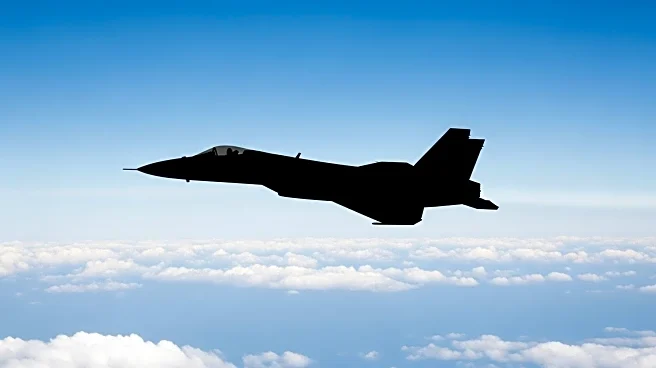What's Happening?
The European defense industry is expected to experience substantial growth over the next decade, with revenue from European customers projected to increase by 10.5% to 11.5% annually. This growth is driven by rising military budgets and commitments to NATO's 2035 spending targets. According to analysts Olivier Brochet and Joe Orchard from Rothschild & Co. Redburn, countries that have historically underspent, such as Germany, or those close to perceived threats like Russia, are likely to see the fastest growth. The European Union's defense spending increased by 19% to a record €343 billion in 2024, with further increases expected to reach €381 billion in 2025. The backlog for European defense companies has expanded significantly, with the industry expected to triple its revenue by 2035.
Why It's Important?
The projected growth in the European defense industry is significant for several reasons. It indicates a shift in defense priorities within Europe, potentially leading to increased self-reliance and reduced dependency on external defense suppliers. This growth could also impact the U.S. defense industry, as Europe plans to outgrow the U.S. in defense spending relative to GDP. The increase in defense budgets may lead to more investment in critical areas such as air defense, ground defense equipment, and drone technology. However, the funding challenge remains acute for countries with high public debt, such as France, the UK, Italy, and Spain. Public support for rearmament is not guaranteed, especially in countries distant from perceived threats.
What's Next?
Future elections in Europe may test the resolve of voting populations regarding defense spending, with potential regime changes leading to backtracking on rearmament plans. Additionally, the end of Russia's war in Ukraine could introduce pricing pressures on European defense companies, as battle-proven products enter the international market at competitive prices. Companies may need to adopt defensive strategies, such as joint ventures with Ukrainian Defense Industry, to maintain their market position. Diversified groups like Thales and BAE, not specialized in ammunition and drones, may best resist post-conflict pressures.
Beyond the Headlines
The ethical and cultural dimensions of increased defense spending in Europe are complex. The trade-off between social security and defense security may lead to public dissent, especially in countries where the perception of imminent danger is low. The rapid innovation cycle in drone technology and anti-drone warfare presents challenges in maintaining technological superiority. European governments may be hesitant to place large orders for drones due to the risk of obsolescence. The funding of defense initiatives through borrowing or taxes could further strain public finances in countries with high debt levels.









